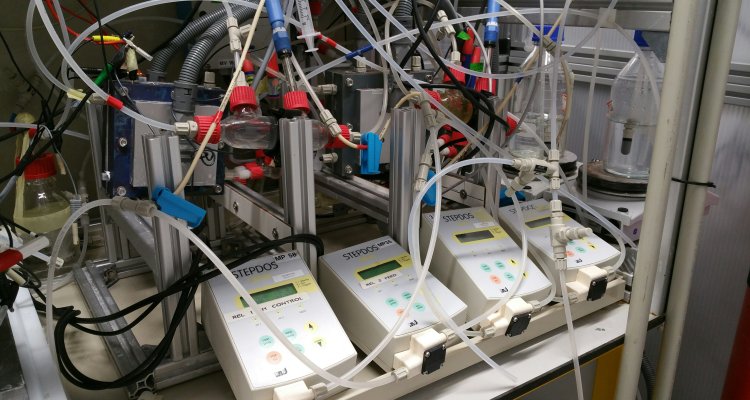
Project
Ammonium Recovery using Bio-Electrochemical Systems
Motivation
• increasing fertilizer demand for NH3
• increasing pollution water of NH3 and organic compounds
• NH3 and organics can be removed by bioelectrodialysis and subsequent recovery
• Bio-electrochemical Ammonium Recovery
(BEAR): elegant combination of removing NH3 and organics from wastewater and NH3 recovery for fertilizer
Technology
- Suitable wastewaters contain high concentrations of biodegradable organic compounds and Total Ammonia Nitrogen (TAN)
- Microbial Electrolysis Cell (MEC) oxidizes organics and removes TAN (Figure 2)
- TAN is recovered by TransMembrane Chemisorption as ammonium salt
- Ammonium salt can be used directly or as precursor of fertilizer
Research
- Investigate bio-degradability of concentrated wastewaters for BEAR
- Understand and improve MEC operational stability to improve process control
- Develop and test new reactor designs for more efficient and effective BEAR
Publications
Georg, S., de Eguren Cordoba, I., Sleutels, T., Kuntke, P., Ter Heijne, A., & Buisman, C. J. N. (2020). Competition of electrogens with methanogens for hydrogen in bioanodes. Water research, 170, 115292.